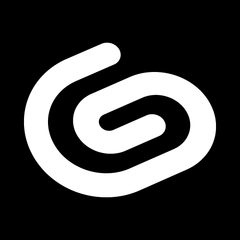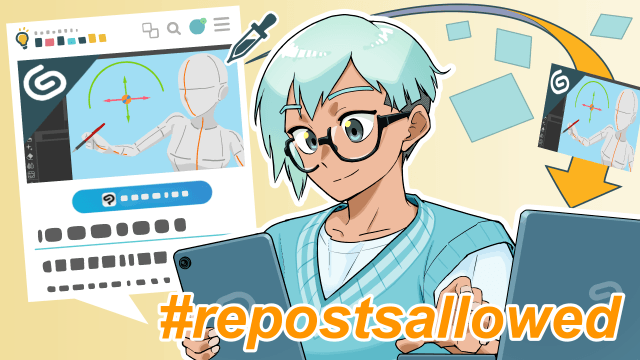3. Flat colors
[1] Organizing the layers
Before adding the flat colors, I organize the layers. Up to now, I’ve been organizing layer folders by process, but from this stage onward I will organize the layers into different folders for the character and the background (autumn leaves in foreground, window frame in foreground, window frame, and classroom).
[2] Adding flat colors
To add the flat colors, I mainly use the [Fill] tool > [Refer other layers], and paint each part on a separate layer.
▼ Tool used: [Refer other layers]
This sub tool fills the area on the selected layer while referring to drawn parts on other layers.
I use the [Pen] tool > [Mapping pen] to paint small unfilled areas.
▼ Tool used: [Mapping pen]
This sub tool doesn’t change much according to the pen pressure, and it is good for drawing delicate lines often seen in manga for young girls. It’s set at 100% opacity, so it’s useful for filling in small unfilled areas and drawing small details.
On parts of the skin where another color will layer on top, I go over the lines into the space where the uniform is so that there won’t be any unfilled gaps between the colors.
Now I’ve finished adding the colors for the character.
I fill the background in the same way as for the character.
[3] Preparing for coloring
To prepare for the next coloring stage, I move the rough color layers above the flat color layers.
On the [Layer] palette, I click the [Clip at Layer Below] icon at the top to clip the rough color layer as a base layer.
My flat color layers are divided into smaller sections than the rough color layers, so I go to the [Layer] menu > [Duplicate Layer] and duplicate the rough color layers for the background and clip them to each flat color layer.
TIPS:
When you [Clip at Layer Below], the selected layer will only be shown within the drawn parts of the lower layer (or layer folder). You can set this using the icon at the top of the [Layer] palette.
By clipping my rough color layers to the flat color layers, the rough color only shows in the areas that I added the flat colors.
By using the rough color layers, I can get a better idea of the overall effect when painting the character. This will help me in the painting stage.
Now, my preparation for coloring is complete.























Comment